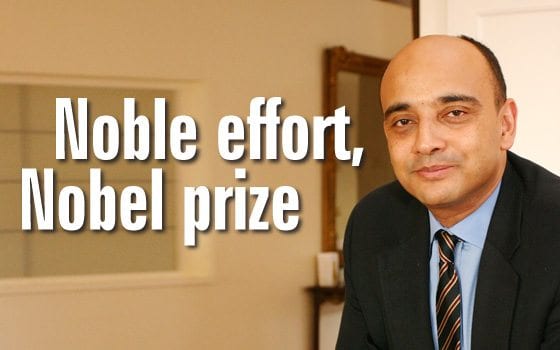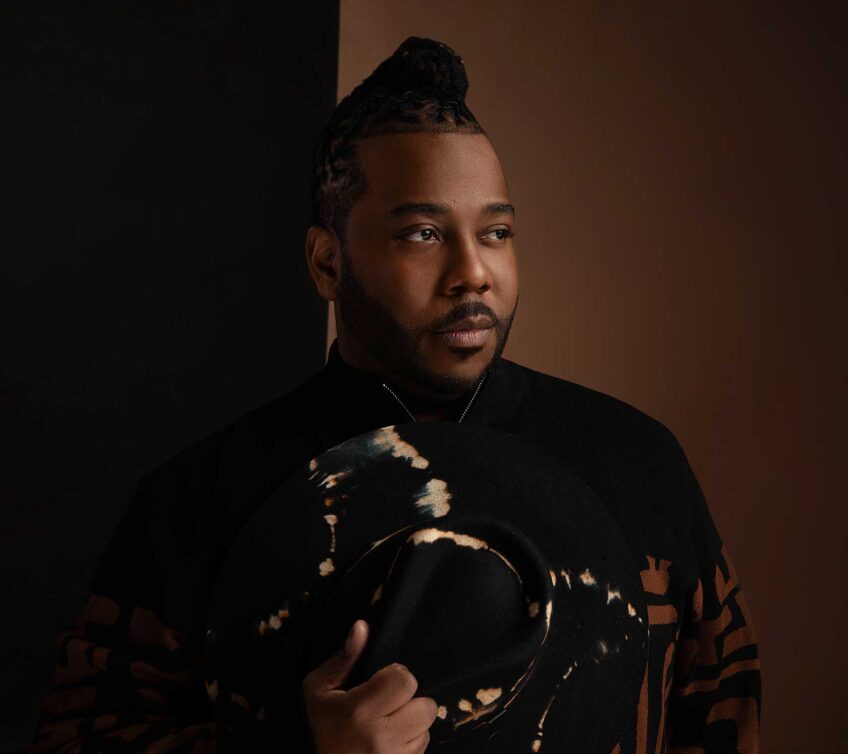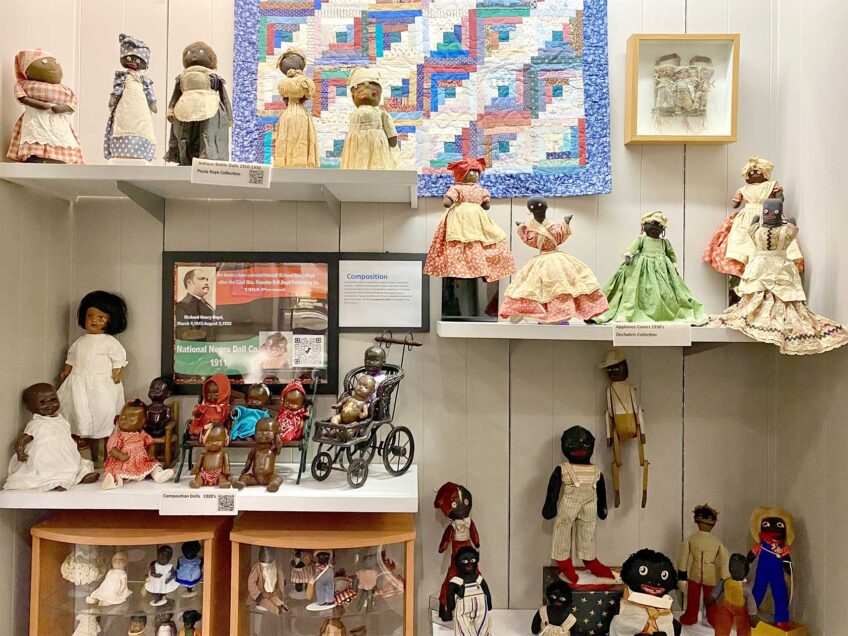An interview with scholar Kwame Anthony Appiah on imprisoned Nobel laureate Liu Xiaobo

An interview with scholar Kwame Anthony Appiah on imprisoned Nobel laureate Liu Xiaobo
In January of this year, Kwame Anthony Appiah, an African and African American literature and cultural studies professor at Princeton University, formally nominated 54-year-old Chinese writer Liu Xiaobo for the Nobel Peace Prize.
Xiaobo, a poet and literary critic, was sentenced last year on Christmas Day to 11 years in prison by the Chinese government for what they call “inciting subversion of state power” with a document that he co-authored called “Charter 08.”
Since Xiaobo’s indictment, Appiah has been one of his leading proponents, and in his nomination to the Norwegian Nobel Committee he informed them that Xiaobo was one of the leading voices of the bloody riots that took place in China’s Tiananmen Square in the late 1980s. He also praised Xiaobo’s work and credited him for having prevented more bloodshed by urging the students to democratize their movement. Xiaobo even encouraged the protestors to disarm themselves to prevent further violence from erupting, and they did.
Appiah also stated that Xiaobo was a colleague and president of the Independent Chinese PEN Center, the sister organization to PEN American Center where Appiah sits as president of the board of trustees. The PEN centers date back to 1921 when International PEN was founded in England during the First World War and in response to the human rights violations taking place at that time. The PEN American Center formed in 1922, and has the largest membership of the 144 PEN centers throughout the world.
All of the PEN centers have as mandates a respect for the common currency of literature, and they each share a declaration that free expression is a necessary and transferable right.
In his nomination letter, Appiah compared Xiaobo’s courage to stand up against systematic oppression to Martin Luther King Jr.’s relentless fight for Civil Rights in the 1960s. Quoting a passage from “Letter From Birmingham Jail” that King wrote just weeks before he received the Nobel Peace Prize, Appiah illustrated to the committee how Xiaobo had echoed the same sentiments. In a statement given just 10 days after his prison sentence was given, Xiaobo wrote: “For an intellectual thirsty for freedom in a dictatorial country, prison is the very first threshold. Now I have stepped over the threshold, and freedom is near.”
On Thursday, Oct. 7, 2010, Xiaobo was awarded the Nobel Peace Prize, even though the Chinese Foreign Ministry spokesman Ma Zhaoxu said a briefing in Beijing that “If the Nobel Peace Prize is awarded to such a person, it is obvious that it is totally wrong.”
One would think that receiving such a prestigious honor would immediately set Xiaobo free, but not in China or in many other places across the globe where free expression can cost one their freedom. Within hours after the announcement of Liu Xiaobo’s honorable win, Appiah responded to a request from the Banner to discuss China’s plight for democracy and PEN American Center’s mission to protect free expression across the world and even here at home.
As the president of PEN American Center’s board of trustees, what are your concerns when it comes to China now?
PEN International in general and the PEN American Center in particular are deeply committed to extending the right of free expression, particular to people everywhere and we worked very hard on it in China, Turkey, Kenya and the United States. We are particularly worried, because it’s our focus, about the fact that everybody in China is denied the right to freely express themselves about certain things. Like all forms of censorship, China has a focus and their focus is on people who are challenging the government’s view about what counts as legitimate democratic institutions and so while there’s much more public discussion than there used to be in China, there are certain topics where you can get thrown in prison for a very long time. Liu Xiaobo is serving an 11-year sentence because of this.
What did the Chinese government find so incriminating about Liu Xiaobo statements?
There are two things that they are particularly anxious about what he’s done. One is that he’s one of the people in China arguing that you cannot really move forward with democracy in the end until you abandon the idea of the current political system in China, which is that you only have one political party and it is the Communist Party. He thinks that you should be allowed to organize other political organizations in China and that they should be able to contest with the Communist Party for election.
Now that’s a very simple idea and most people in the world who believe in democracy think it’s obvious that you ought to be allowed to organize political parties other than the party in government. But in China they don’t think that, and they have not thought that since the beginning of the Chinese Communist Party, and of course they didn’t think it before the Empress either. We think it’s very crucial that he be allowed to say this.
The second thing is that he is one of the drafters and one of the first 300 signers of Charter 08, which is a document that was published in China in 2008 and that articulated very simple basic ideas that most of us would find banal, like making sure that everybody has the right to freedom of expression, free association rights and the right to organize politically outside of the framework of the Communist Party. That document was originally signed by 300 of China’s leading figures, now it has been signed by 10,000 people, and it would have been signed by more except that the Chinese government has taken it off the Web. You can’t publish it on the Web in China. Anyone who signed up for it risked being summoned by the police and asked to take their name off of it and if they didn’t take their name off it they risked being harassed in various ways and many of the people who signed it are now in prison, not just Liu Xiaobo but other members of the Independent Chinese PEN Center of which he was the president.
Liu Xiaobo is articulating very fundamental political ideas. In fact, one of the things that he pointed out is that the right of free expression is actually guaranteed under the Chinese constitution.
Are you saying that they are actually ignoring what they have written in their own constitution?
Yes, and you can go to court, but you’ll lose because the courts in China, like everything else in the government, are under the control of the party.
Can the United Nations mediate this conflict?
China is very protective of what they regard as their sovereignty, so they simply wouldn’t recognize the legitimacy of any UN intervention. Any UN intervention of a substantial kind would require their consent in which China has a veto on this. It wouldn’t happen. I think that, as you know, President Obama, since he won the [Nobel Peace] prize last year had to say something about this, and he did. He repeated the request of the American government that Liu Xiaobo be free, which he also said before. In the lead up to his trial last year, when President Obama was in China, we wrote to him, asking him to bring this up with the Chinese government, which he did. When the trial occurred, we wrote to the American Ambassador in Beijing, asking him to send someone to witness the trial, which he did. The United States has made its position clear, and not only did the president make a statement about Liu Xiaobo but the Department of State issued a statement from Hilary Clinton, repeating the government’s stance that China should not be locking these people up.
We do this, the European Union Foreign Minister does this, plenty of the individual governments are doing this, and I think that’s one kind of pressure.
The other kind of pressure comes from you and me or the citizens of many countries telling the Chinese that we respect them as part of the community of nations and that we believe that they should live up to their obligations under international law and guard the right to their citizen’s entitlement. At the PEN International Congress, the week before the prize, we passed a resolution voted for by writers from more than 70 countries urging the government to free not only Liu Xiaobo but also other named writers who are in prison.
What are some current American issues with regard to freedom of expression?
The situation in this country is obviously way better than it is in other countries. You don’t get locked up in America for recommending changes to the Constitution. But there are threats to freedom of expression in this country. What we believe in PEN is a lively culture of readers and writers, people who live in a society in which they can read a wide range of things that they have chosen to read and people who can write a whole range of things that they have chosen to write, and there are many obstacles to that full freedom. Some of them are state, local, city and country governments around the country that are constantly taking books out of libraries because they don’t like what’s in them. And that’s an interference with our freedom to read, and there’s no point in having a freedom to write if nobody is allowed to read anything.
We also have laws now because of the Patriot Act that allow the government to make secret inquiries about what we are reading, and to force librarians to disclose what you’ve checked out at the library. That seems to me an interference with the free flow of ideas. There are many problems here that Americans are not aware of. Some of it is government and some of it is not.
You can ask whether the large media in our country really gives full voice to the serious range of opinions that there are in the country. You can question why people cannot read, because we have massive illiteracy in our country. In fact, there is a higher literacy rate in Carola, India than in the United States. We have many obstacles to people being able to freely participate in the life of literature and the life of political argument in our country and some of them come from the government and many of them come from failures in our education system.
PEN has a prison-writing program because we believe that even prisoners have the right to read and write. In fact, we believe that our society would have more sane incarceration policies if we listened more to the voices of people in prison. We are in the appalling situation of having a country that claims to be the home of freedom and has four percent of the world’s population and a quarter of the world’s prisoners.
Corporations want to do all the business in the dark, and they don’t want us to know what they’re doing. They can abuse libel laws to threaten small newspapers, private people, and bloggers with harsh penalties and expensive legal procedures in order to keep their secrets. That’s another problem with creative expression in America.
There are many things that Americans need to worry about if we are going to make sure that we are the society in which the free exchange of ideas and our lives and politics are guided by a civilized debate and exchange of ideas.



![Banner [Virtual] Art Gallery](https://baystatebanner.com/wp-content/uploads/2024/04/Cagen-Luse_Men-at-store-e1713991226112-150x150.jpg)

![Banner [Virtual] Art Gallery](https://baystatebanner.com/wp-content/uploads/2024/04/Cagen-Luse_Men-at-store-e1713991226112-848x569.jpg)

